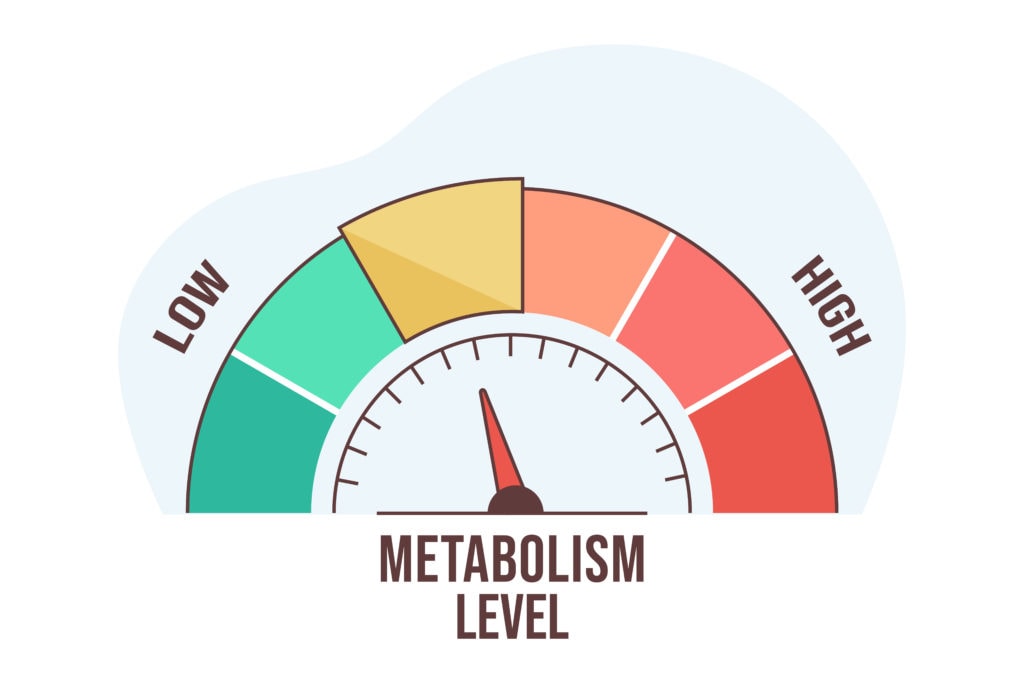
Weight gain is a topic that’s on many people’s minds, especially those who struggle with putting on healthy pounds. While some people may think the solution to weight gain is as simple as eating more and exercising less, the reality is much more complex. In this article, we’re going to take a closer look at the #1 thing people get wrong about weight gain and provide helpful tips for achieving optimal weight gain in a healthy and sustainable way.
The Myth of “Eat More and Exercise Less”
The biggest misconception that people have about weight gain is that it’s all about eating more and exercising less. While it’s true that consuming more calories than you burn can lead to weight gain, this simplistic formula ignores a lot of other important factors.
Metabolism: The Foundation of Weight Gain
The foundation of weight gain is metabolism. Your body turns the food you eat into energy through a process called metabolism. Every person has a unique metabolic rate, which can be influenced by factors such as age, gender, body composition, and daily activity level. A faster metabolism means you burn more calories at rest, while a slower metabolism means you burn fewer calories at rest.
While it’s true that weight gain results from consuming more calories than you burn, it’s not always as simple as consuming more food. If you have a faster metabolism, you may need to consume more calories to achieve weight gain than someone with a slower metabolism. Additionally, age can play a crucial role in metabolism, as it generally slows as we age. For example, a person in their 20s may be able to consume more calories and still maintain a healthy weight compared to that same person in their 40s or 50s.

Quality of Calories Matters
Another important factor in weight gain is the quality of the calories you consume. Consuming nutrient-dense foods such as fruits, vegetables, and whole grains provides your body with essential vitamins and minerals that it needs to function optimally. Nutrient-dense foods can also help support healthy muscle growth and repair after exercise. Conversely, consuming a diet high in processed foods, sugar, and unhealthy fats can lead to weight gain, but it doesn’t necessarily translate into increased muscle mass or improved health.

Strength Training and Building Muscle
Incorporating strength training into your exercise routine is one of the most effective ways to gain weight. Your muscle fibers experience minor microtears when you lift weights. Your body then repairs and strengthens those muscles during rest periods, leading to significant gains in muscle mass over time. Strength training also helps to increase bone density and boost your metabolism, helping you burn more calories even when you’re not exercising. For optimal results, aim to include strength training exercises 2-3 times per week, focusing on the major muscle groups such as your chest, back, legs, and arms.

The Role of Chronic Stress
Your efforts to gain weight may be severely hampered by chronic stress. Stress causes your body to produce the hormone cortisol, which can lead to weight gain, particularly in the belly area. Additionally, stress can cause people to engage in unhealthy eating behaviors, such as reaching for comfort foods or overeating in response to stress. Finding healthy ways to manage stress, such as meditation, exercise, or spending time with loved ones, can help you stay on track with your weight gain goals.

Sleep: The Missing Piece of the Puzzle
Sleep is often the missing piece of the puzzle when it comes to healthy weight gain. Getting sufficient sleep is essential to your overall health and well-being, as well as your ability to gain healthy weight. When you’re sleep-deprived, your body produces more of the hormone ghrelin, which stimulates appetite, and less of the hormone leptin, which helps control hunger. This can make it harder to control your food intake, leading to weight gain over time.

Tips for Healthy Weight Gain
– Ensure that you consume nutrient-dense foods including fruits, vegetables, and whole grains.
– Include strength training exercises 2-3 times per week
– Manage stress through healthy coping mechanisms such as meditation, exercise, or spending time with loved ones
– Get sufficient sleep each night to help regulate hunger hormones and facilitate weight gain
– Talk to a dietitian or healthcare provider if you’re struggling to gain weight
In conclusion, weight gain is not as simple as eating more and exercising less. By understanding the role metabolism, quality of calories consumed, strength training, chronic stress, and sleep play in weight gain, you can make adjustments to your lifestyle to achieve your weight gain goals in a healthy way. Gaining weight may take time and patience, but the benefits of a healthy weight are well worth the effort.
